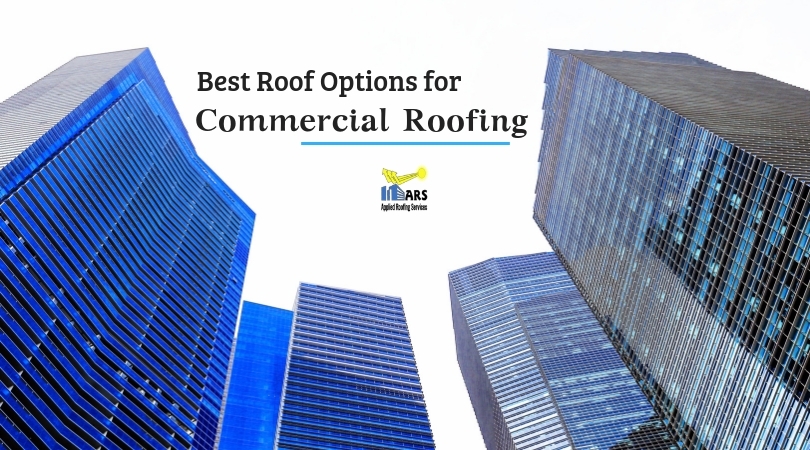


Commercial buildings that have flat roofs need proper maintenance to increase their longevity. Even with proper maintenance, your roof will eventually need to be replaced. There are several viable options for commercial roofing. Evaluate your roofing needs and then determine how much of a budget you can devote to the project.
Asphalt roofing is a commonly used option for commercial roofing projects. A waterproof layer is created by alternating layers of asphalt and felt-like fabric. Additional layers are added as needed to prevent the layers from cracking and becoming compromised. Asphalt roofing can last several years if it is properly maintained and cared for. A yearly inspection is the best way to determine if any repairs are needed or if a section of the roof needs to be replaced.
Metal roofing is one of the soundest investments when it comes to low-slope commercial roofing. Metal doesn’t deteriorate, and it doesn’t rust. It can withstand high winds and falling debris that would damage other types of roofing materials. Metal roofs can last up to 25 years or longer with regular maintenance.
Single-Ply Membrane is a roofing option that has been time-tested for industrial, commercial, and manufacturing facilities. Single-Ply Membranes are made of rubber sheets and other synthetics and can be ballasted, chemically adhered, or mechanically fastened to insulation, creating a protective layer on your commercial facility.
This type of roofing is among the most well-known commercial roofing material types, having several variants to fit your budget and facility needs.
Shingle roofing is widely used for homes and residential roofing, but shingles are also often used for commercial roofing applications with a steep slope. Shingles are made out of different materials, such as wood, slate, plastic, metal, ceramic, or a composite material like asphalt. The two main types of shingles are Asphalt and Architectural.
Built-Up Roofing Systems have been used in the U.S. for more than a century. Built-Up Roofing systems are generally referred to as “tar and gravel” roofs. They are installed on the roof directly by alternating layers of asphalt or tar and supporting fabrics. You can choose the number of plies that are installed. The final layer of this kind of roofing system has gravel or stone.
Other Important Considerations
Regular maintenance and inspection of a roofing system is vital for its longevity. A detailed inspection should be conducted at least once a year by a roofing professional. Additional inspections are necessary after any major weather event. Keep in mind, inspections may indicate the need for repairs. Be sure those repairs are in accordance with the manufacturer’s warranty and made by a licensed roofing contractor.
How do you know when to replace your commercial roof system? Make sure to hire a licensed roofing contractor or inspector to assess your existing system. The roofing professional will inspect the roof for damage based on the building’s use, climate concerns, building codes, energy requirements and may suggest possible repair or replacement options depending on the age and condition of the roofing system.
While understanding the details of the roofing system is essential, there are several factors you need to know about warranties and why they are crucial. Keep in mind, when purchasing a new roof system, there are two warranties to consider: First is the manufacturer’s warranty. In general, these warranties cover defects in the manufacture of the roof membrane. Once the project is complete, be sure the contractor provides you with a certificate for your records. Second, the roofing contractor should provide a warranty covering his craft. Typically, this includes installation and related issues and should contain what items are covered and what will void them. Many contractors offer one or two years of coverage; however, there is no industry standard.
Talk to a professional roofing contractor to ensure that all of your questions are answered. Having the right information can make all the difference in the world.
Choosing the right roof for your commercial roofing project will depend on your budget as well as the type of roof that is already on your building. You can choose to repair or replace an existing roof, or you can choose to equip a brand new one. It’s important to consider all viable options to ensure that you are making the best decision for the longevity of your building.
Also Read: 5 Expert Tips to Make Your Commercial Roofing Sustainable